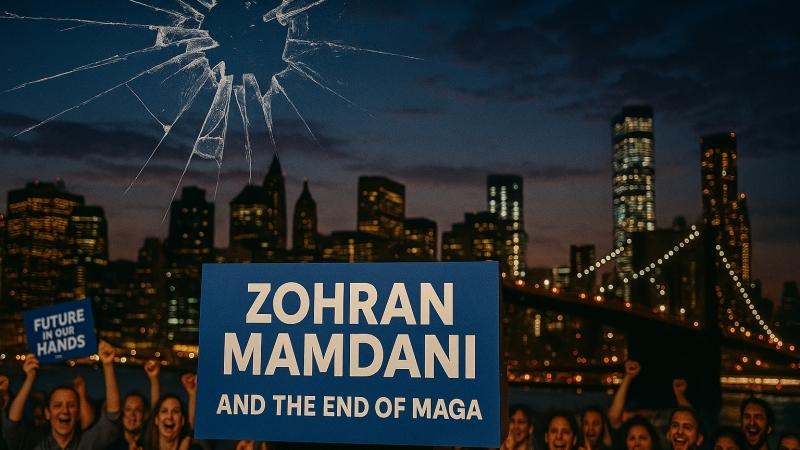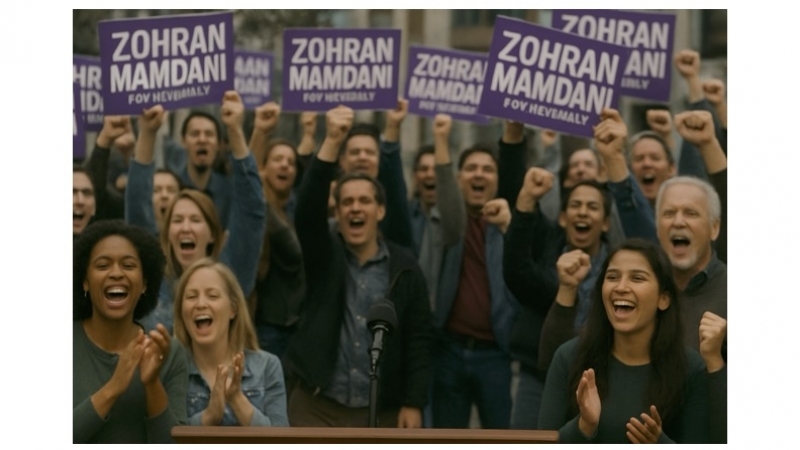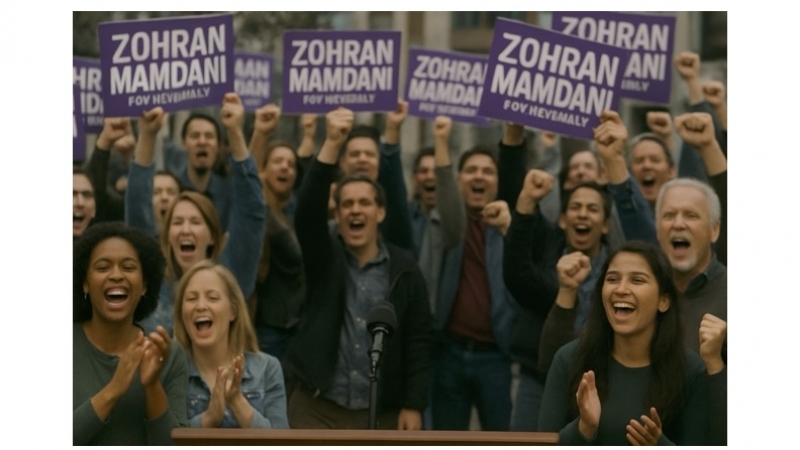Defying Power with Principle: The Remarkable Rise of Zohran Mamdani
Javed Akbar
Jumada' al-Ula' 17, 1447 2025-11-08
Daily News Analysis
by Javed Akbar

Zohran Mamdani’s victory marks not just a political shift, but a cultural reckoning for a city daring to dream again.
In an age when politics is too often measured by wealth, power, and pedigree, Zohran Mamdani stands as a shining exception; a triumph of conviction over capital, of ideals over intimidation.
A Muslim, an immigrant, and the son of immigrants, Mamdani defied the entrenched machinery of billionaires who once dictated the pulse of New York politics.
His victory was not merely electoral; it was moral, a resounding affirmation that courage, intellect, and purpose can still triumph in the citadel of capitalism.
How did he do it?
The answer lies in his foundation.
His parents, both Harvard graduates—his mother, an acclaimed film maker who chose the path of visual arts.
His father is professor at Columbia University. Both were scholars and visionaries in their own right, who gave him not privilege but purpose, the strength of identity and the finest gift any parent can bestow: an education that sharpened his mind and emboldened his soul.
Zohran, in turn, did not shrink from his roots. He embraced them.
He stood tall as a Muslim, as an African-Asian, and as a social democrat in a system enthralled by wealth.
At just 34, Mamdani exudes discipline and composure rare in the modern political arena.
His clean-cut morals and dignity in honesty have become his defining traits.
There is an unyielding determination in him, the quiet conviction that a quitter never wins.
What distinguishes him further is his daring nature: the courage to challenge formidable adversaries with a calm assurance and a broad, infectious smile that often unsettled his opponents more than any speech could.
Even when faced with prickly questions, Mamdani’s smile disarmed hostility and reaffirmed his confidence in truth.
Boldness and fearlessness are his hallmarks; grace under pressure, his enduring strength.
Mamdani’s campaign was a masterclass in message discipline and strategic foresight.
It stayed ahead of the narrative, transforming skepticism into solidarity.
The open secret of Mamdani’s popularity was his extraordinary inclusiveness.
He embraced New Yorkers of every faith, ethnicity, and nationality, the rich and the poor alike, men and women, as fellow New Yorkers and fellow citizens.
He built a multiracial, cross-class coalition that stretched from affluent professionals to the struggling working class—a broad, inclusive alliance bound not by identity politics but by shared ideals of justice, dignity, and opportunity.
When the ultra-rich poured their resources into his opponents’ campaigns, backed by powerful lobbies and the most formidable media apparatus, Mamdani met them not with resentment, but with resolve.
His campaign spoke not the language of fear but of fairness, not of division but of dignity.
His victory became a jolt to Donald Trump’s presidency, a referendum on the politics of exclusion and excess that have come to define this era.
Mamdani’s life is a reminder—and a lesson—to every parent, every young student, and every aspiring politician that greatness is not inherited; it is cultivated through discipline, purpose, and moral conviction.
He has shown that decency need not be sacrificed for ambition, that integrity is not a weakness but a strength that endures.
His journey stands as proof that politics, when guided by conscience, can still be a noble vocation, a sacred trust between the leader and the led.
Parents must instill in their children not just the desire to succeed, but the courage to serve.
And to the young minds who dream of changing the world, let Mamdani’s example be your compass.
Enter politics not as a path to privilege, but as a pledge to principle; not to command, but to uplift; not to seek glory, but to restore faith that leadership, at its truest, is an act of service to humanity.
Javed Akbar is a freelance writer with published works in the Toronto Star and across diverse digital platforms.




